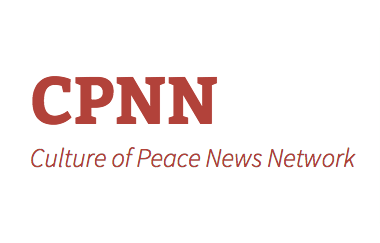CITIES ONCE AGAIN
Once again this month, we find cities in the lead for the various componens of a culture of peace, including sustainable development, tolerance and solidarity, democratic participation, peace activism and disarmament.
Before going into detail, we should celebrate the formal signing of the peace accord for Colombia, which has been under negotiation for several years and which has been followed, step-by-step, by CPNN, as well as the progress towards a peace accord to end 47 years of war between the government of the Philippines and the communist movement National Democratic Front.
The city council of Rennes, France, has voted unanimously to endorse a project working towards food sovereignty. This is the second city of France to take such an approach, the first having been the city of Albi. The project involves a partnership with the NGO "Incredible Edibles." In presenting the project, Councilman Theurier stated, "The approach of Incredible Edible can offer spaces to garden for residents, can strengthen social ties, and promote the greening of the city. It offers free food and promotes the development of urban agriculture and therefore food autonomy of cities. Above all, it can educate for the protection of the environment and recreate the link between people in city and those in food production areas. As the urban population continues to grow, issues related to agriculture – including the preservation of the land – are less tangibly perceived by many of our fellow citizens. Recreating this link is a necessity for the future."
The Mayor of Madrid, Spain, argues that cities can overcome the formal frameworks that keep nation states from resolving key issues. Madrid, for example, has negotiated its own accord with the United Nations to welcome refugees. It has instituted participatory budgeting which can help to end democratic apathy. And as we have noted earlier, Madrid’s response to terrorism is to promote a pro-peace education. As the mayor says, “It starts at school. We want children to learn the value of dialogue and mediation, and for them to learn to solve their own problems among themselves.”
The Culture of Peace Commission of Ashland, Oregon (USA) continues to show the way for promoting peace at the level of the city. It has established a "Community Peacebuilders Network" which lists "all of those local groups and individuals, from all sectors of our community, that have already decided to join us." The Commision plans to hold periodic conferences "encouraging collaborative solutions as we work toward our goal of creating an interconnected web of peace, justice, sustainability and inclusion in our local area."
The newest city peace commission is that of Santos, Brazil. The commission supports the Mayors for Peace Network, as well as activities of civil society, such as the "Paz na ponta do Giz" project of ABrasOFFA that promotes the concepts of peace within schools. A key role of the commission is to make the subject of PEACE a priority on the agendas of all leaders of the city (whether formal, such as the mayor and city representatives, or informal such as leaders that influence citizens’ decisions).
Finally, the UCLG (United Cities and Local Governments) have announced the five finalists for the City Peace Prize which will be awarded during their annual conference to be held in Bogota, Colombia in October. Appropriately (given the signing of the peace accords), two of the cities are in Colombia: Palmira and Cali. Palmira uses a music competition to promote peace, while Cali is training community peace workers. The other cities are Canoas, Brazil, which has established "peace territories,", Shabunda, DRC Congo, which has created "Permanent Peace Committees", and Kauwagan, Philippines, for their programme "From Arms to Farms" for the demobilization of former rebel soldiers.

